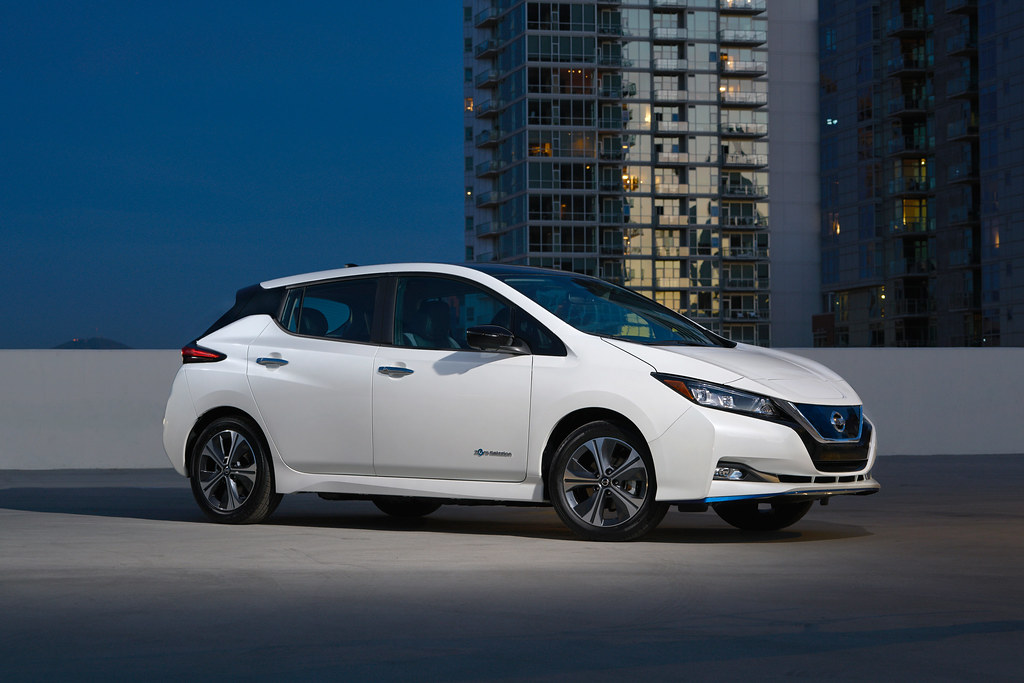When it comes to affordable electric vehicles that can actually work for everyday life, I’ve spent a lot of time looking at two of the best-known names in the segment: the 2024 Nissan Leaf Plus and the Chevy Bolt EUV. These aren’t flashy EVs built for track performance or luxury bragging rights. They’re daily drivers, commuter champs, and cost-conscious entries into EV ownership.

If you’re comparing these two, here’s what I’ve learned after digging into the specs, features, and real-world experiences.
Range and Charging: Not All Miles Are Equal

Let’s get straight to the heart of the EV experience: range and charging.
- The 2024 Leaf Plus offers about 212 miles of EPA-rated range.
- The Bolt EUV gives you 247 miles, which may not sound like a huge jump, but it makes a big difference if you forget to plug in overnight or need to take the longer route home.

When it comes to charging, though, the Bolt wins again. It supports DC fast charging up to 55 kW, while the Leaf’s CHAdeMO fast-charging standard is becoming increasingly outdated and harder to find. In cities or along popular corridors, this isn’t a huge deal, but if you’re road-tripping or live outside urban areas, it matters.
Winner: Bolt EUV, for the better range and more future-proof charging support.
Interior Space and Comfort

I was surprised by how roomy both cars feel on the inside, especially considering their compact footprints.
- The Leaf Plus has a slightly more traditional hatchback shape, which helps with cargo height.
- The Bolt EUV, however, gives you rear seat legroom that rivals some small SUVs. This makes it far more comfortable for passengers—especially if you’re driving coworkers, friends, or family around often.
In both cases, the materials feel about the same: practical, not premium. The infotainment systems are solid, but the Bolt’s UI feels just a little more refined and quicker to respond.
Winner: Bolt EUV, for better rear comfort and a more intuitive infotainment layout.
Driving Feel
The Leaf has this almost smooth and sleepy acceleration—definitely electric, but tuned for comfort. The steering is light, making it easy to park and maneuver in the city.

The Bolt EUV, on the other hand, feels snappier and more planted, especially off the line. GM’s one-pedal driving mode is genuinely fun and makes stop-and-go traffic easier. I found myself barely touching the brake pedal most days.

Winner: Tie, but it depends what you like. If you want a relaxed cruiser, go with the Leaf. If you want a little fun in your drive, the Bolt delivers.
Tech and Features
Here’s where the value game starts to matter.
- The Bolt EUV comes standard with wireless Apple CarPlay and Android Auto, plus Super Cruise (on higher trims), which is GM’s hands-free driver assistance system.
- The Leaf Plus has wired CarPlay and Android Auto, but no advanced driver assistance beyond the usual adaptive cruise and lane keeping.

Both cars come with similar safety tech overall, but the Bolt’s tech stack feels more modern and useful for daily driving, especially if you’re into hands-free commuting on highways.
Winner: Bolt EUV, unless you don’t care about driver assistance or wireless connectivity.
Cost to Own
Here’s the good news: both cars qualify for tax credits, depending on inventory and your location. As of now, the Leaf is often offered with steep dealer discounts, especially if you’re near the end of a model year or closeout cycle. I’ve seen Leafs go for under $30k, which is wild for an EV.
The Bolt EUV may be a little more expensive up front, usually starting around $28k before tax credits, but you’re getting longer range, newer tech, and better resale potential.

Neither car is expensive to charge or maintain. You’re looking at a few bucks a day on electricity, and practically no oil changes, ever.
Winner: Tie, depending on what deals you can find.
Who Should Buy Which?
Here’s how I’d break it down:
- Choose the 2024 Nissan Leaf Plus if:
- You can find a killer deal from a local dealer
- You’re mostly city driving and don’t care about road trips
- You prefer a softer, more traditional ride
- Go with the Bolt EUV if:
- You need more range and don’t want to worry about CHAdeMO chargers
- You care about modern tech and want more usable rear space
- You want an EV that still feels kinda fun to drive
You Might Also Be Interested In:
- Best Home Chargers for Tesla Model 3
- How Long Does It Take to Charge a Tesla at Home
- Are Used Electric Cars Worth It?
Final Thoughts

After spending time with both, I’d personally lean toward the Bolt EUV for its range, practicality, and future-readiness. That said, I wouldn’t hesitate to recommend the Leaf Plus to someone who wants the lowest possible entry point into EV life—especially if they don’t plan on doing much long-distance driving.
Both cars serve different kinds of drivers really well. For daily commutes and short trips, they’re smarter and more budget-friendly than you’d expect. Just don’t forget to test drive both before you decide. It’s the only way to know which one fits your life best.
Let’s Talk Cars
Have a question? A suggestion? Just want to say hi?
You’re in the right place.
Use the form below to reach out to the AutoSpecs Daily team. We're happy to hear from readers, car lovers, first-time buyers, and anyone who's got something to share.
What can you contact us about?
- Feedback on one of our articles
- Ideas for new topics you'd like us to cover
- Questions about cars, gear, or general auto advice
- Media, partnership, or brand inquiries
- Anything else that's on your mind
We check every message that comes through and do our best to respond within 2 to 3 business days.
We don’t list an email address here to avoid spam, but the contact form is the best and fastest way to reach us.
Thanks for stopping by. We're glad you're here.

